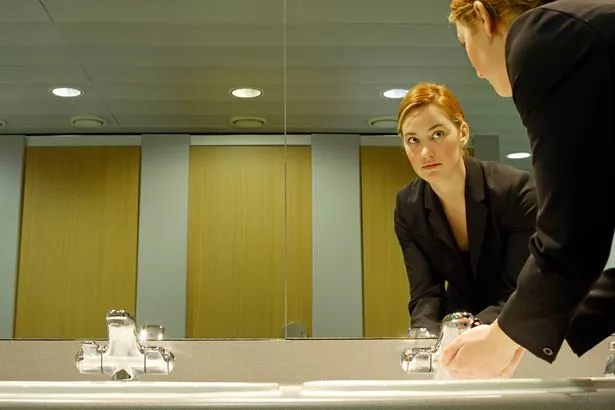Huge Number Of Workers Admit To Masturbating At Work After Boss Brings In 30-Minute Pleasure Break
By Khadija Pervez | Community | 30 July 2025
Introduction
What is a typical workplace benefit? Most people could include free coffee, a exercise membership, or even the occasional lunch with colleagues. However, at one entertainment company for adults located in Spain employees get an entirely different experience an exclusive 30 minutes of time to sex throughout the day.
The policy was unorthodoxly introduced through Swedish filmmaker and businesswoman Erika Lust of Sweden, who has been referred to as being the “queen of ethical porn.” Since 2022, Lust has made what she refers to as”masturbation breaks” or “masturbation break” part of her workplace’s culture.
While it may sound strange or even shocking to somebut she claims it’s not only improving the efficiency of employees but also breaking down the taboos about sexual wellness. Experts suggest that her plan may not be as radical as it may appear.
A Policy That Raised Eyebrows
Lust She runs an adult entertainment company in Barcelona started testing the idea after the lockdowns of Covid-19. Staff members were under pressure and their energy levels dropping Lust decided to offer her employees an alternative way to relax.
“I noticed that my team was agitated and performing with less energy than before,” she stated during an interview. “So, knowing there’s one thing that reliably makes people feel good, I set up a private masturbation station in the office.”
Her results says were impressive. “When my employees feel good, we do good work,” Lust said.
In 2022, the policy was officially incorporated into the corporate policy. Everyone in the company is given an hour of rest whenever they want, and during that time they are free to go to a space that is that is designed to relax and enjoy themselves.




After the break is finished Employees return to their workstations make calls, or resump their emails without awkward questions being asked.
The Numbers Behind the Taboo
While the concept of a workplace where employees are masturbating isn’t often discussed research suggests it’s more frequent than most people admit.
A survey taken by Time Out New York found that nearly 4/10 employees (39 percent) confessed to pleasuring their employees while working.
A few admitted to doing this since “they were getting paid anyway.” Others claimed it was an opportunity to reduce tension during a stressful or stressful day.
As per Psychology Today, the act of sexual intimacy alone can serve as a means of copinglike stepping outside to smoke or taking a brief nap.
Boots one of the largest UK health and wellness store has also highlighted the benefits of masturbation that go beyond its physical appearance that can help reduce stress, ease period discomfort, and boost confidence in tackling difficult tasks.
Expert Opinions
Health professionals have said Erika Lust’s approach might be unusual, but it’s in line with the larger studies on sexual well-being.
“Sexual wellbeing is deeply intertwined with mental and physical health and should be treated with the same respect as diet, exercise, and sleep,” Lust explained in explaining the break.
Dominnique Karetsos Co-founder and CEO of the Healthy Pleasure Group (HPG), agrees. The definition she uses is “healthy pleasure” as sexual fulfillment, and ties it directly to overall health.
“Understanding that sexual self-pleasure is related to both sexual health and emotional health is incredibly important,” she said to Boots. “It means having access to good information and recognising your right to intimacy without shame or embarrassment.”
A psychotherapist Ian Kerner gives some more cautionary advice. He says that many men, especially who use masturbation in working environments as a method to manage stress.
“In my experience, when men masturbate at work, it’s often because it has become a substantial coping mechanism,” said the psychologist. “They’re in a stressful or anxious place, not fully thinking, and the next thing, they’re in the bathroom masturbating.”
For Kerner The key to success is finding the right balance between recognizing the psychological benefits of a positive attitude while maintaining boundaries in the workplace and maintaining professionalism.
From Taboo to Trend?
While Erika Lust’s firm is a bit different but the policy she has adopted is part of a larger trend to encourage discussions on sexual health in the workplace.
In the aftermath of the pandemic, many enterprises began experimenting with the flexibility of working hours such as meditation breaks, yoga, and wellness programs. Lust advocates that self-care for sexual health is a must in conjunction with these strategies.
“Masturbation helps regulate sleep, manage stress, and build a healthier connection with one’s body,” she said. “Why should it be left out of the conversation about wellbeing?”
The experiment has since attracted worldwide attention, triggering discussions over whether similar policies might ever be successful outside of the adult entertainment sector.
A few experts in the workplace suggest that it is difficult to make the transition into more traditional industries where employees may feel uneasy or are not comfortable, or where the cultural and legal standards are more strict.
Others claim that the concept -the right of employees to have meaningful breaks is getting traction in a variety of ways. The nap-pods of Silicon Valley to mindfulness sessions in UK workplaces, the distinction between personal health as well as professional productivity is becoming blurred.
Employee Experiences
While employees of Erika Lust are mostly private in their reporting however, feedback from within the company shows that it has been overwhelmingly accepted.
Employees say they feel “less irritated and more focused” after taking a break. Many reported increased energy levels and less stress during stressful tasks.
The program has also established a society in which no one is ashamed of going “away” for thirty minutes. Through a normalization of the procedure, Lust says, she has gotten rid of the stigma that is often the source of the stigma.
A Wider Social Shift
The debate about masturbation at workplace is part of an ongoing cultural debate. For decades, sexual desire is a subject of silence as well as shame and silence, especially in workplace environments.
Advocates such as Lust and Karetsos consider that this silence is detrimental. They believe that recognizing self-care for sexual pleasure as an aspect of health can reduce stress, enhance relationships, and help combat the stigma that persists around masturbation.
Some, however, are skeptical. Some see the concept as not professional or are concerned that it could cause awkward interactions among colleagues. Some fear that policies such as Lust’s may be misunderstood or and even result in legal problems in non-adult workplaces. sector.
Productivity and. Professionalism
The main question is whether or not masturbation breaks really boost productivity and if the benefits are worth the any potential dangers.
For Lust the evidence is evident that her team is happier and performs better. However, experts caution against using an approach that is one-size-fits-all.
Businesses may want to consider more non-controversial wellness strategies, like the benefits of meditation, exercise, or a flexible work schedule, before attempting to enter such sensitive area.
Conclusion
Masturbation is a topic that is not discussed with ease in particular at workplace. But Erika Lust’s study has proven that when the taboo topic is tested, the results may be awe-inspiring.
For her, a 30 minutes of pleasure breaks are about more than just productivity. It’s an attempt to change the way that people think about sexual health, and to suggest that self-care regardless of its form is worthy of a place in the workplace.
















